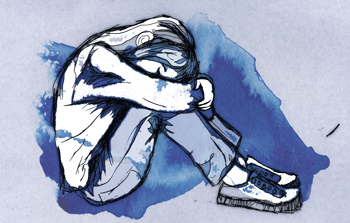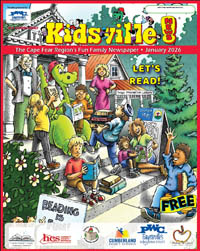 Publisher Bill Bowman yields his space this week to Dr. Shanessa Fenner, who shares an up close and personal educator's perspective on the importance of raising awareness of child abuse prevention.
Publisher Bill Bowman yields his space this week to Dr. Shanessa Fenner, who shares an up close and personal educator's perspective on the importance of raising awareness of child abuse prevention.
I remember my first year as an elementary teacher. I decided that I wanted to sit all of my students in a circle on the carpet and have a discussion about appropriate and inappropriate touching. They sat there and looked at me while listening attentively to every word that I said.
After the conversation one of my girls walked up to me and grabbed my hand. She told me that she had something to tell me. She told me that someone had inappropriately touched her. I told my teacher's assistant to watch the kids and we ran to the front office. I was so upset. Of course the authorities were contacted but I remember thinking that I am going to talk to my babies on a consistent basis about this because I have to protect them. The years have passed by, but I still think about her from time and time and hope she is doing okay.
April is National Child Abuse Prevention Month. A report of child abuse is made every ten seconds in the United States. At least one in seven children have experienced child abuse and/or neglect in the past year. The Administration for Children & Families report a national estimate of 1,840 children died from abuse and neglect in 2019 compared to 1,780 children who died in 2018. Rates of child abuse and neglect are five times higher for children in families with a low socioeconomic status compared to children in families with a higher socioeconomic status.
The Centers for Disease Control and Prevention reports that about one in four girls and one in 13 boys experience child sex abuse at some point in their childhood. Some of the signs of sexual abuse include difficulty walking or sitting, sleeping with clothes on, age inappropriate bedwetting, runs away, not wanting to go to the bathroom, and sexual behavior or knowledge inappropriate for a child.
Signs of neglect entail being dirty or has a body odor, frequent absences from school, begs or steals food, developmentally delayed, and not having the right clothes for the weather.
General symptoms of abuse include low grades in school, mental health issues such as depression, anxiety, or low self-esteem, unusual interaction with parent, and slower than normal development.
The impact of child abuse does not end when the abuse stops. These children may experience depression, anxiety disorders, poor self-esteem, aggressive behavior, suicide attempts, alcohol and drug abuse, post-traumatic stress, and other difficulties.
Some states require all adults to report suspicions of child abuse or neglect. It is not your job to investigate, just report what you suspect. If you suspect a child is being abused call the National Child Abuse
Hotline at 1-800-422-4453.
Pictured above: Child Abuse (n)- pysical, sexual or psychological mistreatment ot neglect of a child by a parent or other caregiver.

 How to resolve AdBlock issue?
How to resolve AdBlock issue? 








